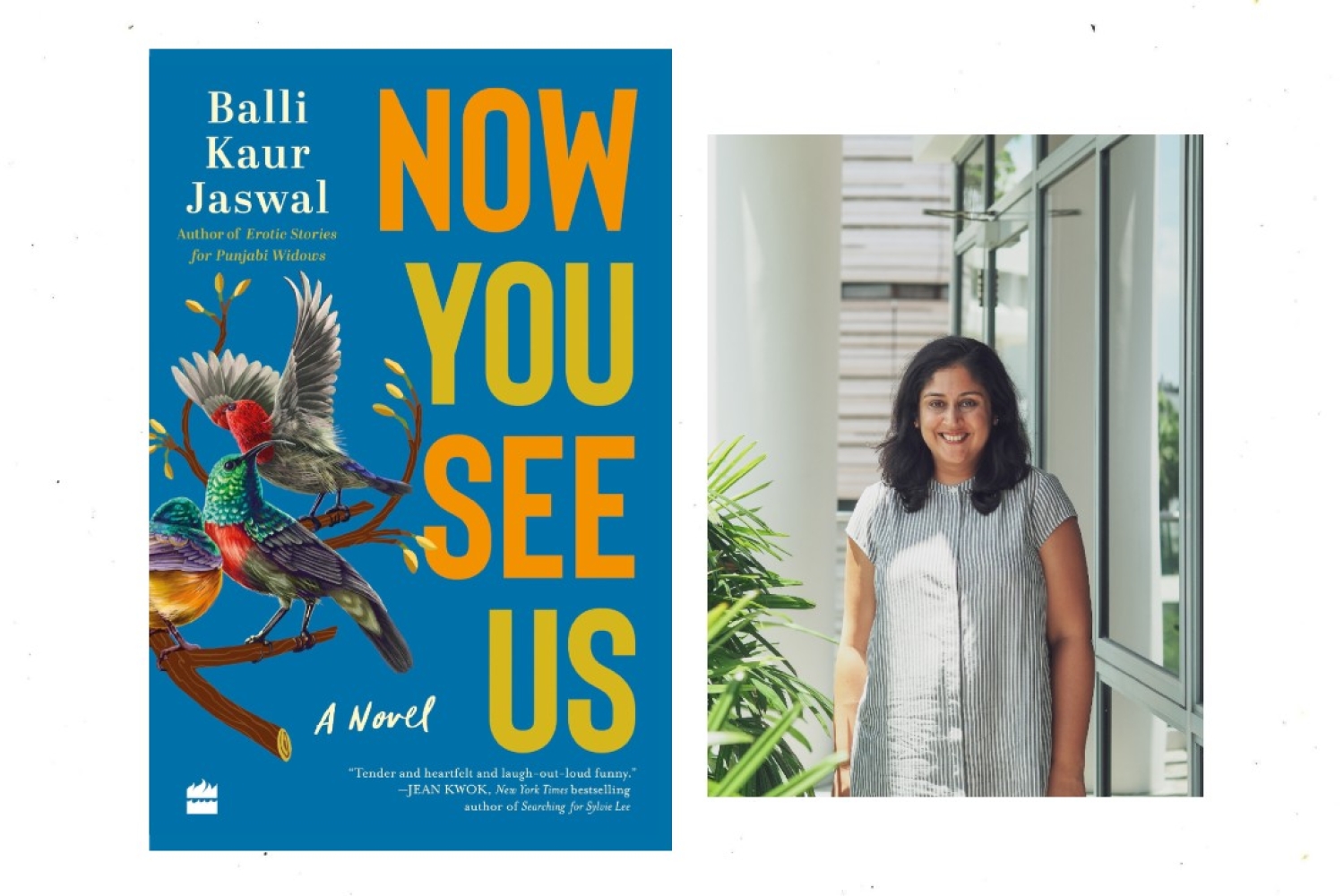

“I still love writing the way I did as a child. I love the feeling of possibility,” reveals acclaimed author, Balli Kaur Jaswal. Her new book, Now You See Us, revolves around the lives of domestic workers. Acquainting us to the book, she shares, “I hope readers have some insight into the lives of people who work quietly and often thanklessly in the background. So many systems are designed to keep domestic workers and other serving staff invisible. The characters in my novel have pasts, desires, aspirations, friendships, spiritual relationships, senses of humour – and many other individual facets. They are also vulnerable to many unspoken rules and power dynamics. I want readers to feel that tension.”
Read more form our conversation with Balli Kaur Jaswal about her journey as a writer and her new book below:
What is your first memory of writing?
I used to write little stories in a notepad at home. I think I began writing around the same time I started reading. I loved Roald Dahl books and had my own little worlds that I created to match his. In second grade, we read a book of his called The Magic Finger and then came up with our own versions, which our teachers bound into actual books, with author photos and a bio and everything. It was so thrilling.
After all these years, how has your craft as a writer evolved?
I’ve become better at self-editing and more ruthless about cutting chapters or characters that don’t serve the narrative.
What inspired Now You See Us?
In my teens, my family moved from Singapore to the Philippines a few years after a Filipina domestic worker was executed for murdering a Singaporean. I felt caught between two narratives in a sense because in Singapore, she was considered absolutely guilty but in the Philippines, she was wholeheartedly assumed to be innocent. It was my first lesson in understanding that truth can be perceived differently depending on who is telling the story.
I wondered how a story like that would play out in the media today, where we are more connected globally and have access to many news sources, including alternative media, as opposed to the 1990's when we only had one source of news in Singapore, which was state-sponsored.
What, for you, constitutes the core of this book?
The inner lives of domestic workers are at the centre of this book. I wanted to centre their narratives and bring them out of the margins as characters and women with identities beyond their roles of servitude.
Could you give us some insight into your creative process?
I wrote this book the way I write anything — one word at a time, building the narrative and getting to know the characters better as the draft progressed. I waited until I was a few chapters into the early draft to do research in the form of interviews with domestic workers. I wanted to establish who the characters were and what made them tick before speaking with real life people who might give me more insight into their context.
Were there any challenges?
I wrote a large portion of this novel during the Covid lockdowns in 2020, which meant that my interactions with people were limited. I was also unable to travel to the Philippines as planned because borders were closed, and that was an obstacle because I had planned to do more research into the recruiting agencies, et cetera, to provide a sense of the women’s journeys to Singapore. In the end though, a lot of that information would have been cut out of the novel as I had to focus the narrative on the present action (lest it turn into an eight hundred-page tome).
Lastly, what are you working on next?
I just gave birth to my second child so for the moment, I’m taking time to just stay present, be grateful and see my family through this new adjustment. I do have some ideas brewing for another novel but it’s too soon to tell.
Words Nidhi Verma
Date 09-06-2023